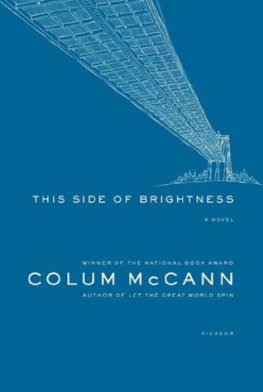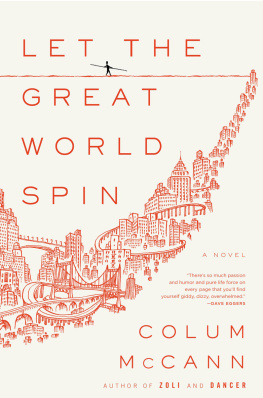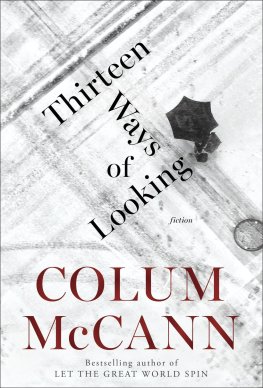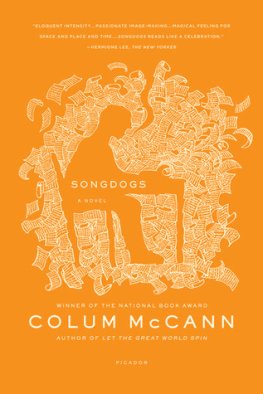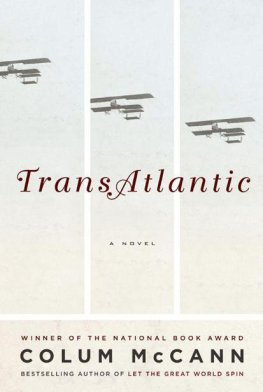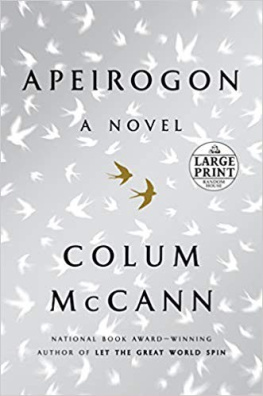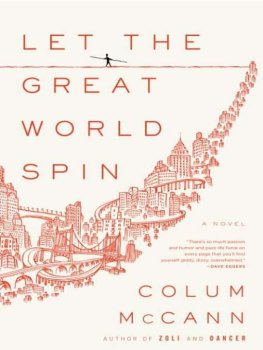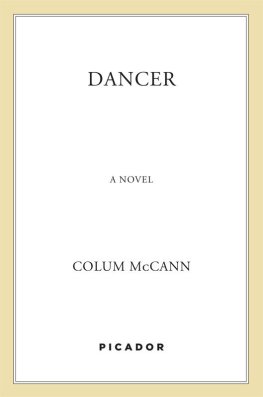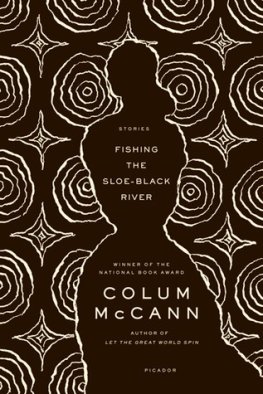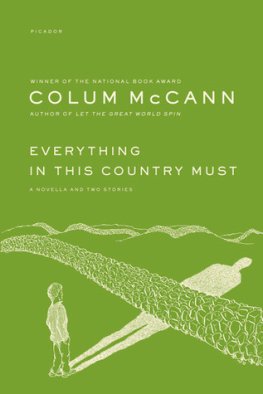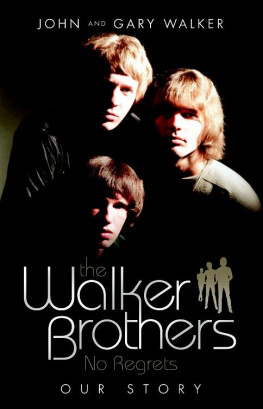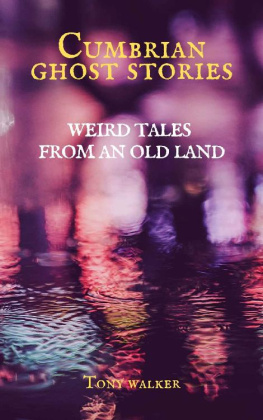Colum McCann
This Side of Brightness
For Siobhan, Sean, Oonagh, and Ronan.
And, of course, for Allison.
We started dying before the snow and, like the snow, we continued to fall. It was surprising there were so many of us left to die.
LOUISE ERDRICH, Tracks
On the evening before the first snow fell, he saw a large bird frozen in the waters of the Hudson River. He knew it must have been a goose or a heron, but he decided that it was a crane. Its neck was tucked under its wingpit and the head was submerged in the river. He peered down at the waters surface and imagined the ancient ornamental beak. The birds legs were spread out and one wing was uncurled as if it had been attempting to fly through ice.
Treefrog found some bricks at the edge of the path that ran along the waterfront, lifted them high, and flung them down around the bird. The first brick bounced and skidded on the ice, but the second broke the surface and animated the crane for just a moment. The wings skipped minutely. The neck moved in a stiff, majestic arc and the head emerged from under the water, gray and bloated. He rained the bricks down with ferocious intent until the bird was free to move beyond the ice to where the river flowed.
Tipping his sunglasses up on his forehead, Treefrog watched the bird float away. He knew it would sink to the sands of the Hudson or get frozen in the ice once more, but he turned his back and walked away through the empty park. He kicked at some litter, touched the icy bark of a crab-apple tree, reached the tunnel entrance, and removed both his overcoats. He squeezed his way into a gap in the iron gate and crawled through.
The tunnel was wide and dark and familiar. There was no sound. Treefrog walked along the railway tracks until he came to a large concrete column. He touched the column with both hands and waited a moment for his eyes to adjust; then he grabbed onto a handhold and, with spectacular strength, hauled himself up. He walked along the beam with perfect balance, reached another catwalk, and shunted himself upward once more.
In his dark nest, high in the tunnel, Treefrog lit a small fire of twigs and newspaper. It was late evening. A train rumbled in the distance.
A few pellets of ratshit had collected on the bedside table, and he swept them off before opening the table drawer. From the depths of the drawer Treefrog took out a small purple jewelry bag, undid the yellow string. For a moment he warmed the harmonica in his gloved fist above the fire. He put it to his mouth, tested its warmth, and pulled in a net of tunnel air. The Hohner slipped along his lips. His tongue flickered in against the reeds, and the tendons in his neck shone. He felt the music was breathing him, asserting itself through him. A vision of his daughter whipped up she was there, she was listening, she was part of his music, she sat with her knees tucked up to her chest and rocked back and forth in childish ecstasy and he thought once again of the frozen crane in the river.
Sitting there, in his nest, in the miasmic dark, Treefrog played, transforming the air, giving back to the tunnels their original music.
They arrive at dawn in their geography of hats. A dark field of figures, stalks in motion, bending toward the docklands.
Scattered at first in the streets of Brooklyn they have come by trolley and ferry and elevated train they begin to gather together in a wave. Hard men, diligent in the smoking of cigarettes, they stamp yesterdays mud from their boots as they walk. A trail of muck is left in the snow. Ice puddles are cracked by the weight of their feet. The cold inveigles itself into their bodies. Some of the men have big mustaches that move like prairie grasses above their lips. Others are young and raw from razors. All of them have faces hollowed by the gravity of their work; they smoke furiously, with the knowledge of those who might be dead in just a few hours. Hunching down into their overcoats, they can perhaps still smell last night on their bodies they might have been drunk or they might have been making love or they might have been both at once. Later they will laugh at these stories of drink and love, but for now they are silent. It is far too cold to do anything but walk and smoke. They move toward the East River and cluster near the tunnel entrance, stamping their boots on the cobblestones for warmth.
The snow turns to slush at their feet.
When the whistle calls the sandhogs to work, they take a last pull on their cigarettes. The red tops of the butts flare and are dropped to the ground, one by one, as if swarms of fireflies are laying themselves down to rest.
In the middle of the line, Nathan Walker watches as men from the nighttime shift emerge from the tunnel, mucked head to toe, exhausted. Walker realizes that he is looking at his future, so he doesnt stare too closely, but every now and then his hand stretches out and slaps a finished mans shoulder. The weary man raises his head, nods, lurches on.
Walker resists the urge to sneeze. He knows that to have a cold means losing a days pay his nose or his ears might leak blood in the compressed air beneath the river. If a cold is telegraphed, the foreman will pull him out from the crowd. So Walker sucks his coughing and his sneezing down into his stomach. He takes an amulet from his pocket, a piece of stone, and rolls it around in his fingers. The good-luck charm is icy to the touch.
Walker whispers to his partner, Con OLeary. What say, bud?
Sick as a small hospital. A hangover to beat the band.
Me too.
Sweet Jaysus, its cold though, says OLeary.
Aint it just?
Heads up, son, here we go.
The foreman nods at the two sandhogs, and they join the group at the mouth of the shaft. They stand close together and inch forward. Walker hears the whine of the compression machine from underground. Its a long hard high sound that will soon become nothing in his ears; the river is a grabber of sound, taking it, swallowing it. Walker adjusts his hat and gives a last look out over the distance. Across the river the three-arch customs house is gray in the morning; longshoremen are busy at the docks; a couple of cargo ships are negotiating floes of ice; out on the water, a young woman in a bright red coat stands on the deck of a ferryboat, waving her arms back and forth. Walker recognizes her as Maura OLeary; just before he disappears from view her husband, Con, touches his hat in a gesture that could be dismissal or boredom but is in fact love.
Walker grins at the sight, lowers his head, and begins his descent beneath the river toward another days digging on this, a morning so cold that even his heart feels frozen to the wall of his chest.
* * *
In the manlock, the door is closed tight and air hisses in around the sandhogs.
Walker opens the top button of his overcoat. He can feel his toes loosening now in the hot pressurized air. A bead of sweat forms on his brow, and he flicks it away with his thumb. Beside him, OLeary stands slumped against the wall, breathing deeply. The two are soon joined by Sean Power and Rhubarb Vannucci. The air grows torrid as the pressure rises. It is as if a heat wave has decided to accompany them underground during winter. The four men hold their noses until their ears begin to pop.
After a few minutes, Power crouches down and takes a deck of cards from his dungarees. The men search in their pockets for coins and play hog poker while the air compresses their bodies to thirty-two pounds per square inch. Walker wins the first round, and Power slaps the young black man on the shoulder.
Look at you, hey, the king of spades!
But Walker takes no offense. He knows there is a democracy beneath the river. In the darkness every mans blood runs the same color a dago the same as a nigger the same as a Polack the same as a mick so Walker just laughs, puts the winnings in his pocket, and deals the second hand.

